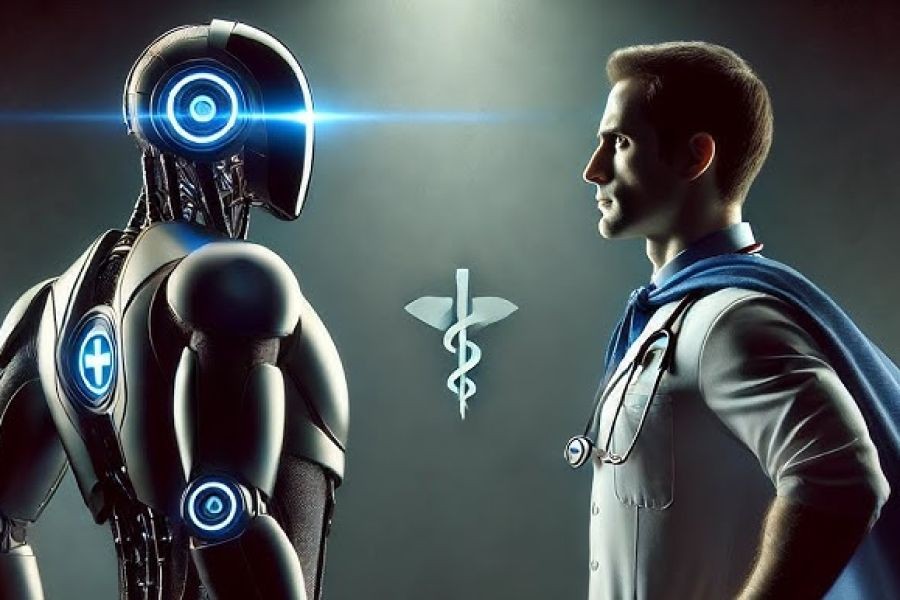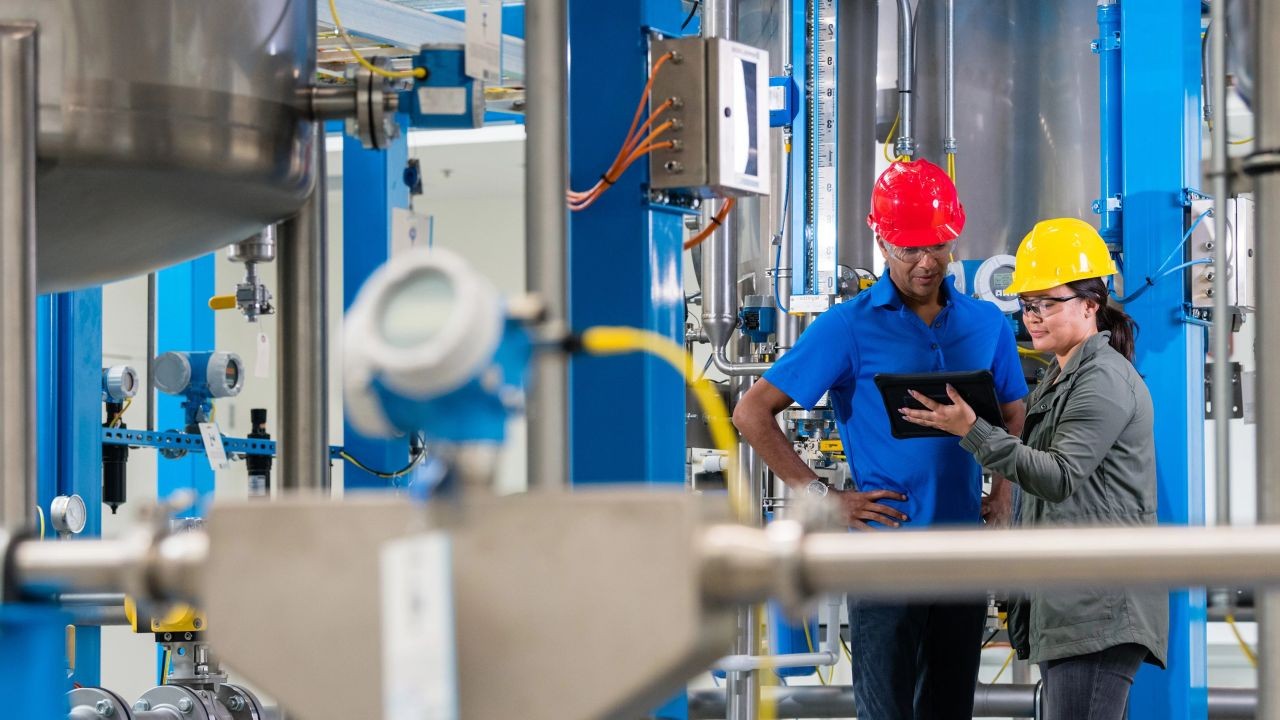In recent years, the healthcare industry has witnessed a significant shift towards incorporating artificial intelligence (AI) in medical decision-making processes. This trend raises a critical question: will AI outperform humans in making better medical decisions? While AI offers numerous advantages, such as data processing speed and pattern recognition, human intuition and empathy remain irreplaceable aspects of healthcare. This article delves into the potential impact of AI on healthcare decision-making, particularly in the Australian context, and examines who might ultimately make better medical decisions.
AI in Healthcare: The Australian Landscape
Australia's healthcare system is renowned for its quality and accessibility. However, like many other countries, it faces challenges such as an aging population, rising healthcare costs, and the need for more efficient decision-making processes. AI has emerged as a potential solution to some of these issues.
According to the Australian Bureau of Statistics (ABS), healthcare expenditure in Australia has been steadily increasing, reaching 10.3% of GDP in 2022. AI technologies, such as machine learning and predictive analytics, have the potential to optimize resource allocation and improve patient outcomes. For example, AI algorithms can analyze large datasets to identify patterns and predict disease outbreaks, enabling proactive measures in public health management.
Case Study: AI in Radiology at Royal Melbourne Hospital
Royal Melbourne Hospital has been at the forefront of integrating AI into its radiology department. Facing a shortage of radiologists, the hospital implemented AI-powered image analysis software to assist in diagnosing conditions such as tumors and fractures. The AI system demonstrated an 87% accuracy rate, comparable to experienced radiologists.
Problem: The hospital faced a shortage of radiologists, leading to delays in diagnosis and treatment.
Action: AI-powered image analysis software was introduced to support radiologists, speeding up the diagnosis process.
Result: Diagnosis times were reduced by 30%, and the accuracy rate was maintained at 87%.
Takeaway: AI can effectively complement human expertise in radiology, improving efficiency and patient outcomes.
The Human Element: Intuition and Empathy
While AI offers remarkable capabilities, it cannot replicate human intuition and empathy, which are crucial in healthcare. Human doctors possess the ability to connect with patients on an emotional level, understanding their unique circumstances and preferences. This connection often leads to more personalized care, which can significantly impact patient satisfaction and adherence to treatment plans.
In Australia, where cultural diversity is prevalent, the ability to understand and respect different cultural backgrounds is vital. Human doctors can adapt their communication styles and treatment approaches to cater to patients from various cultural backgrounds, fostering trust and cooperation.
Case Study: Human Touch at St. Vincent's Hospital, Sydney
St. Vincent's Hospital in Sydney emphasizes the importance of empathy in healthcare. The hospital has implemented a patient-centered care model that prioritizes emotional support and communication.
Problem: Patient satisfaction scores were declining due to a perceived lack of personalized care.
Action: The hospital introduced a patient-centered care model that prioritized empathy and communication.
Result: Patient satisfaction scores increased by 25%, and adherence to treatment plans improved.
Takeaway: Human intuition and empathy are essential components of effective healthcare, enhancing patient satisfaction and outcomes.
Pros and Cons: AI vs. Humans in Healthcare
Pros of AI
- Efficiency: AI can process vast amounts of data quickly, leading to faster diagnoses and treatment plans.
- Consistency: AI algorithms provide consistent results, reducing the risk of human error.
- Cost-Effectiveness: AI can optimize resource allocation, potentially reducing healthcare costs.
Cons of AI
- Lack of Empathy: AI lacks the ability to connect with patients on an emotional level.
- Data Privacy Concerns: The use of AI in healthcare raises concerns about data security and patient privacy.
- Dependence on Data Quality: AI's effectiveness is contingent on the quality and completeness of the data it processes.
Regulatory Insights
The Australian Competition & Consumer Commission (ACCC) and the Australian Prudential Regulation Authority (APRA) play crucial roles in regulating AI in healthcare. Ensuring data privacy and security is paramount, and these regulatory bodies are actively working to establish guidelines for the ethical use of AI in healthcare.
For instance, the ACCC emphasizes the importance of transparency and informed consent when collecting and using patient data for AI applications. This regulatory oversight aims to protect patient rights while fostering innovation in healthcare.
Future Trends and Predictions
The future of AI in healthcare in Australia is promising. By 2028, it is anticipated that AI-driven diagnostics will become standard practice in many hospitals, leading to more accurate and timely diagnoses. This shift will likely result in improved patient outcomes and reduced healthcare costs.
Moreover, as AI continues to evolve, it is expected to enhance personalized medicine by tailoring treatment plans based on individual genetic profiles and lifestyle factors. This level of precision medicine will revolutionize healthcare delivery, offering tailored solutions for patients across Australia.
Conclusion
While AI has the potential to revolutionize healthcare decision-making, it is not a replacement for human doctors. The ideal future lies in a collaborative approach, where AI complements human expertise, enhancing efficiency and accuracy while preserving the empathy and intuition that only humans can provide.
As Australia continues to integrate AI into its healthcare system, striking the right balance between technology and human touch will be crucial. This harmonious blend will ensure that patients receive the best possible care, combining the strengths of both AI and human decision-making.
People Also Ask
How does AI impact healthcare decision-making in Australia? AI enhances healthcare decision-making in Australia by providing faster diagnoses and treatment plans, improving efficiency, and optimizing resource allocation.
What are the limitations of AI in healthcare? AI in healthcare is limited by its lack of empathy, data privacy concerns, and dependence on data quality for accurate results.
How can AI and human doctors collaborate effectively? AI and human doctors can collaborate effectively by utilizing AI for data analysis and prediction while relying on human doctors for empathy and personalized care.
Related Search Queries
- AI in Australian healthcare
- Human vs. AI medical decision-making
- AI and healthcare ethics in Australia
- Future of AI in medicine
- AI impact on healthcare costs
































BruceBroth
10 months ago